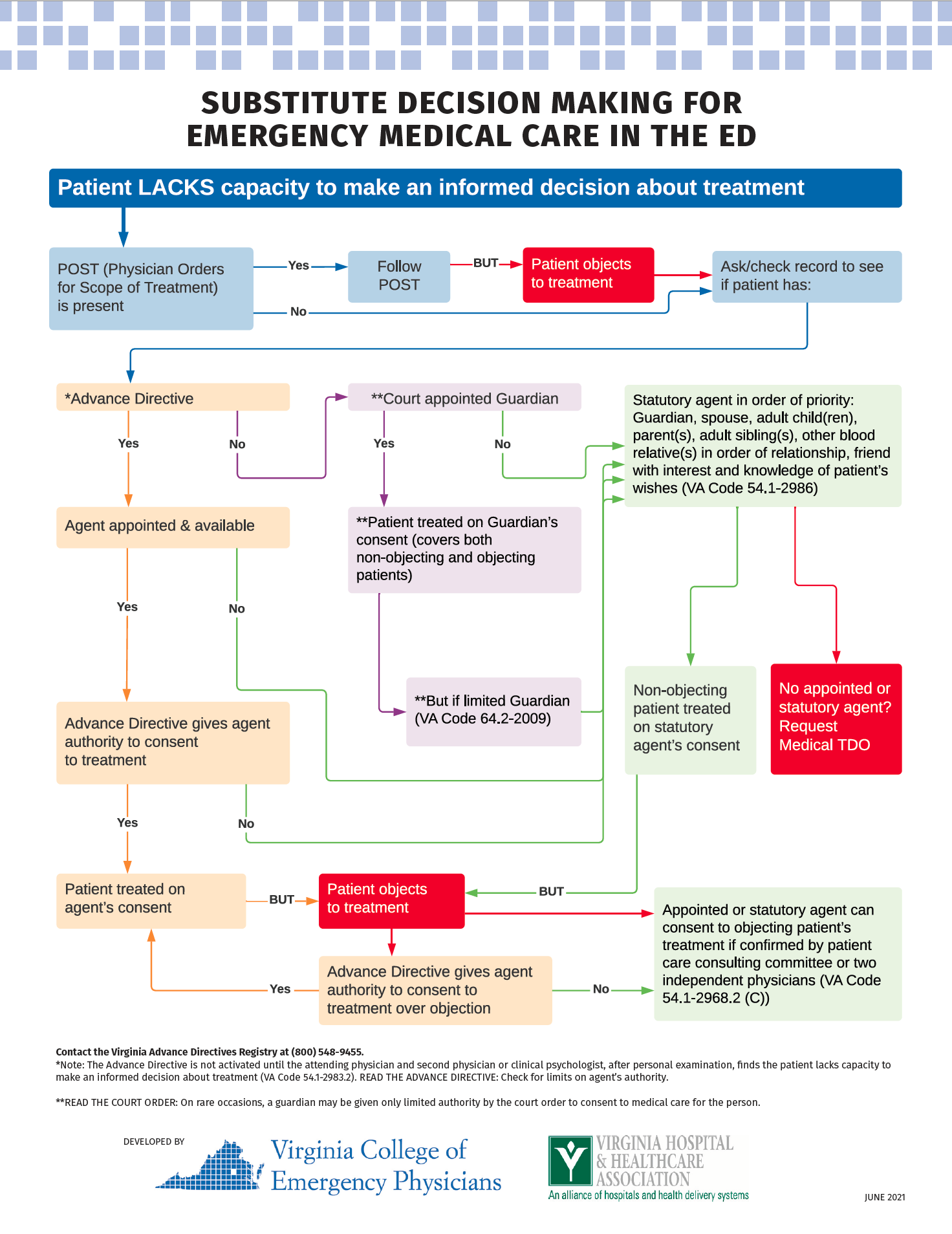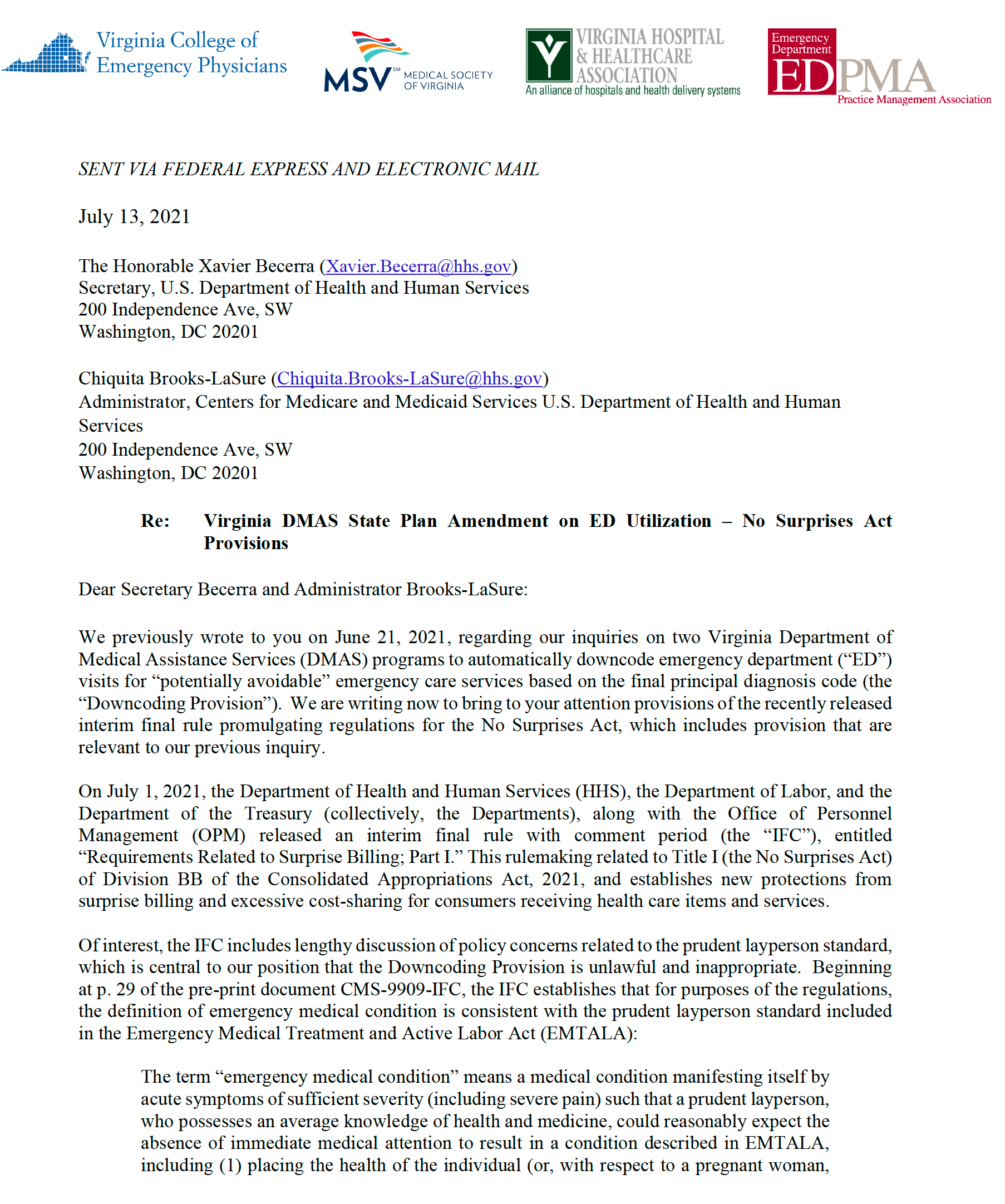For years, due to restrictions in the Code of Virginia, emergency physicians statewide have had difficulty obtaining a Medical Temporary Detention Order (TDO) in a simple way when under time constraints. VACEP has for years tried to pass legislation to standardize and simplify the process for EPs. It hasn’t worked.
Yet many emergency physicians and providers are unaware that in patients who lack capacity and refuse medical care, a Medical TDO through a court or magistrate is not the only option.
Patients have a fundamental right to informed consent when it comes to treatment of their physical health issues. But in patients who lack capacity, there are emergency exceptions as well as “substitute” informed consent options available.
Over the last few months, VACEP and our partners at the University of Virginia Institute of Law, Psychiatry and Public Policy (ILPPP) created guidelines for substitute decision-making for informed consent, along with a new clinical algorithm, that can be used to determine the best course of emergency medical treatment in patients who lack capacity. Both documents have been approved by the Virginia Hospital and Healthcare Association.
The documents are available for free to VACEP members and all medical providers in Virginia. In addition, we have recorded a podcast with VACEP’s Joran Sequeira, MD, FACEP, as well as healthcare attorney and patient advocate Nathan Kottkamp. The duo provide a comprehensive overview of the issue and the new guidelines.
If you have questions or concerns on substitute decision making for informed consent, reach out to VACEP Executive Director Sarah Marshall.
Special thanks to the joint VACEP-ILPPP workgroup on this issue. For VACEP: Joran Sequeira, MD, FACEP, Aubrey Miner, DO, and Aimee Perron Seibert. For ILPPP: John Oliver, Heather Zelle, Ph.D., and Richard Bonnie. Thanks also to Nathan Kottkamp for his input and guidance.




